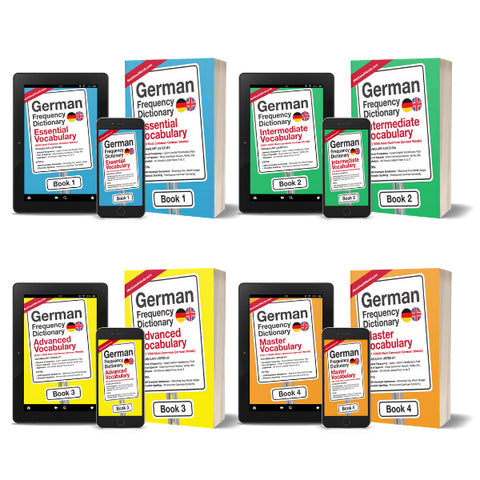
How Do You Say You’re Welcome in German?
They may not be literal magic words, but anyone knows that a little bit of politeness can get you a long way.
Nothing makes a better first impression than polite manners, and incorporating a simple please or thank you can go a long way in helping you out, no matter the situation.
Learning how do you say you’re welcome in German, among other phrases, is essential for just about any proper communication.
These short and simple words and phrases will make sure that you are well received with an eye on being polite.
Bitte schön [ˈbɪtə ʃøːn ] - You’re Welcome
When someone says thank you in German, the most polite response is to simply say Bitte schön, which gives the exchange a nice little rhyming quality.
Similarly to saying thank you in German, in casual situations, you may shorten the phrase to just Bitte (like the word for please above), but the most common and correct response is Bitte schön to say you’re welcome in German.
In addition, Bitte schön may be a phrase used as a question to offer someone something, like passing dishes at a table.
P.S. For those who might have forgotten, it’s you’re welcome (shortened from you are welcome), and not your welcome. After some research, we saw that around 10% of all German learners use the spelling variant your welcome instead of you’re welcome.
The German Frequency dictionaries are a great source, if you want to expand your practical German vocabulary fast. They give you the top 10.000 most used German words. The German entries come with their English translation, the correct German pronunciation, detailed grammatical information and a German-English example sentence, showing you word usage in context.
Danke schön [ˈdaŋkə ʃøːn] - Thank You
Like in English, there are many ways to say thank you in German.
However, Danke schön will be the one-size-fits-all option that will work to express your gratitude in any situation.
For more casual settings, it can be shortened to simply Danke; however, Danke schön will be the most universally appropriate option for most situations.
Bitte [ˈbɪtə] - Please
For most of us, called the magic word for a reason, please can literally and figuratively open doors for you.
German uses the word Bitte in a lot of ways, but it’s most common use is to say please. However, context matters. The word can also be used to say that you are sorry or you are welcome.
Thankfully, all the uses of Bitte are polite, so you should be able to say it without fear of offense.
Entschuldigung [ɛntˈʃʊldiɡʊŋ] - Excuse Me
Another helpful phrase, particularly in crowded places like concert venues or a city, is “excuse me.”
In German, that phrase is Entschuldigung, which bears a similarity in context to saying “Excuse me, sorry,” in English.
For formal occasions, you might add the word Sie after Entschuldigung, but that is primarily used for more formal occasions.
Wie Bitte? [ˈviː ˌbɪtə] - What Did You Say?
When you are conversing in a language foreign to you with a native speaker, sometimes the speed can be overwhelming, but it can be intimidating to ask for someone to repeat what they’ve said.
In German, the phrase “Wie Bitte?” serves as the polite way to ask someone to repeat or clarify something they’ve recently said. If you are struggling in German, this can be a lifesaver.
More Ways How To Say You’re Welcome in German
1. Thank you and you’re welcome.Vielen Dank und Ihr Willkommen
2. You're very welcome.
Bitte sehr or Bitte schön!
3. Please and you’re welcome.
Bitte und gern geschehen
How Do You Say You're Welcome - Formal Ways
- Bitte schön.
- Bitte sehr.
- Gern geschehen. It was my pleasure.
- Mit Vergnügen. With
How To Say You're Welcome - Informal Ways
- Gern geschehen. It was my pleasure.
- Shortened from "Gern geschehen”.
- Nichts zu danken. Don't mention it. (literally: no need for thanks.)
- Schon gut. That's allright. No problem.
- Kein Problem. No problem.
Conclusion
Being polite only generally takes a couple of extra words but those words can carry a big weight. By incorporating these simple and polite phrases, like how do you say you’re welcome in German, you’ll be certain to always be at your most polite in any conversation.

If you want to know more useful practical German vocabulary, take a look at the German Frequency dictionary series. You will learn only the most important German words, so you can build a practical German vocabulary fast.